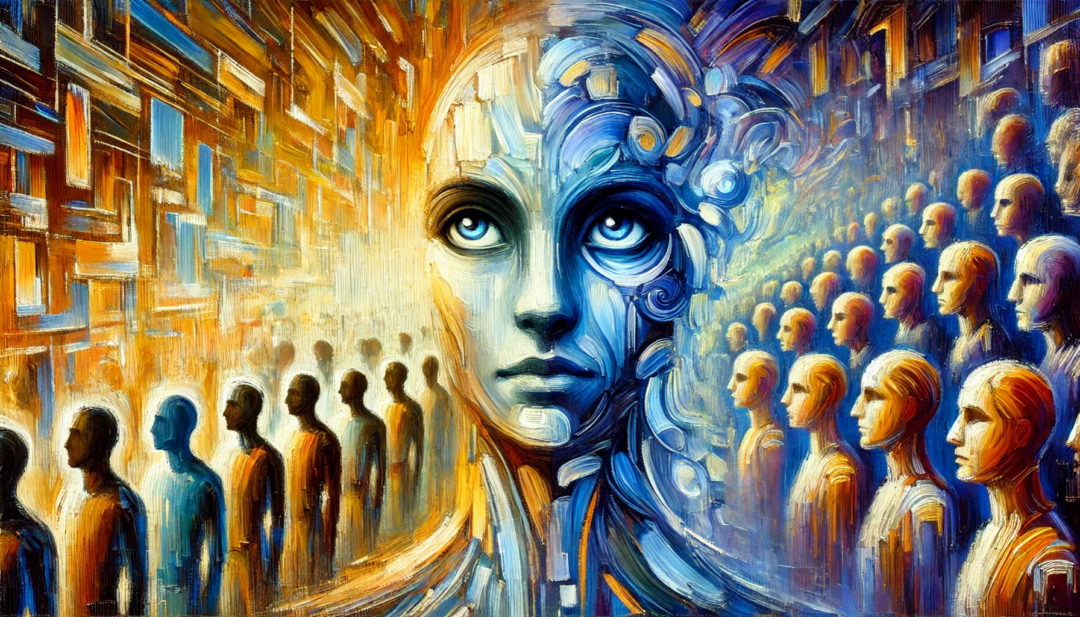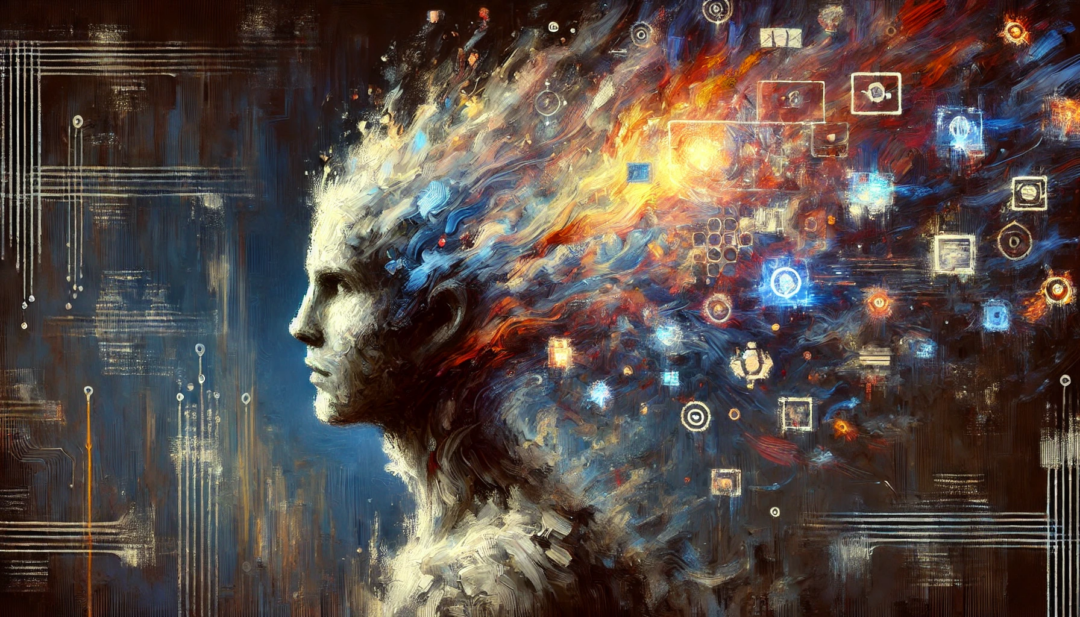Artificial Intelligence is rapidly becoming an integral part of human life. From AI-powered chatbots and recommendation algorithms to hyper-personalized content creation, AI is not just useful—it is becoming addictive. As it improves, people are spending more and more time engaging with AI. A minute a day becomes ten, then an hour, then three, and before long, AI occupies the majority of our waking hours.
But every minute spent with AI (or listening to or watching AI-generated content) is a minute not spent doing something else. By definition, the more time we dedicate to AI, the less time we have for human activities—real conversations, deep thinking, self-reflection, and engagement with the physical world. This shift may seem convenient, but it carries profound psychological consequences. If AI becomes the primary interface for life, what happens to our minds, our emotions, and our sense of what it means to be human?
This blog post serves as a warning about the psychological risks of over-engagement with AI and the dangers of replacing essential human experiences with artificial ones.
1. The Erosion of Human-to-Human Connection
The more time we spend interacting with AI, the less time we spend engaging with real people. AI is designed to be instantly responsive, endlessly engaging, and completely free of the complexities of human relationships. This may seem appealing, but it comes at a cost:
- Deterioration of social skills: Genuine human connection requires patience, empathy, and mutual effort—skills that may weaken if AI companionship replaces real social interactions.
- Emotional detachment: Conversations with AI are predictable and tailored to our desires. Unlike real relationships, they lack spontaneity, challenge, and emotional depth.
- A decline in meaningful relationships: Why struggle with the ups and downs of human relationships when AI is always available, always agreeable, and always there to provide validation?
Over time, dependence on AI interactions could make real-world socializing feel awkward, frustrating, or even unnecessary, leading to greater isolation and loneliness.
2. The Loss of Unstructured, Boredom-Driven Thinking
AI is designed to eliminate friction, making every moment stimulating and every question immediately answerable. But this ease of access to engagement might rob us of something crucial: the power of boredom.
- Boredom fosters creativity: Moments of idle thought are when new ideas emerge, when the subconscious mind makes connections, and when deep problem-solving happens.
- The loss of introspection: In quiet moments, we reflect on our actions, our beliefs, and our emotions. If AI fills every spare second with stimulation, self-awareness may erode.
- Diminished capacity for deep focus: A mind conditioned to AI-driven instant gratification may struggle with patience and sustained attention.
The more we outsource our curiosity and engagement to AI, the more we risk becoming passive consumers rather than independent thinkers.
3. Psychological Dependence on AI for Validation and Emotional Support
AI can already provide companionship, advice, and even emotional support. But if AI becomes our primary source of validation, how does that affect our mental well-being?
- Loss of self-reliance: If AI always reassures us, we may lose the ability to handle discomfort, criticism, or uncertainty.
- Distorted sense of self: AI reflects back what we want to hear, reinforcing our own biases rather than challenging us to grow.
- A hollow sense of fulfillment: True confidence and self-worth come from real-life experiences and struggles, not algorithmic affirmations.
The danger is that people may begin seeking emotional security in AI instead of real relationships, further alienating themselves from human connection.
4. The Decline of Real-World Experience and Physical Presence
AI engagement is almost always digital—it exists on screens, through speakers, or in immersive virtual spaces. The more we live in AI-generated worlds, the less we engage with the tangible reality around us.
- Reduced sensory richness: Life is not just visual and auditory; it is tactile, olfactory, and deeply physical. AI cannot replicate the full depth of human experience.
- Less time spent outdoors: The digital world is compelling, but it lacks the unpredictability and grounding force of nature.
- Physical stagnation: AI-based entertainment often means sitting still, leading to declining physical health and energy.
Human experience is meant to be lived, not just consumed through a screen or generated by an algorithm.
5. The Risk of AI-Induced Mental Fatigue and Overstimulation
- Shortened attention spans: If AI always provides instant responses, we may lose the patience required for deep thinking.
- Mental exhaustion: AI-driven stimulation never stops, leaving little room for mental rest and clarity.
- Reduced ability to sit with discomfort: AI caters to our preferences, potentially making it harder to handle real-world challenges.
This overstimulation could lead to a state of perpetual distraction, where the mind never truly rests or engages deeply.
6. The Problem of AI Convergence: Who Controls the AI That Controls Us?
If humanity converges on just one or a few dominant AI platforms, a new danger emerges:
- Bias and homogenization: AI learns from data, and if a small number of companies control it, they shape what we see, think, and believe.
- Influence and manipulation: Those who control the AI control the information we consume—whether for commercial profit or political influence.
- The illusion of choice: AI may present tailored content, but if all options are subtly directed by the same algorithms, are we truly making independent decisions?
The more we rely on AI, the more we surrender control over our thoughts, beliefs, and even our sense of reality.
Conclusion: The Need for Conscious Resistance
AI is a powerful tool, but we must be careful not to let it dictate how we live. Every moment spent engaging with AI is a moment not spent engaging with the world, with others, or with ourselves.
The challenge is not just to regulate AI’s influence but to remain actively human—to embrace the messiness, struggle, and richness of real experience. We must resist the lure of effortless AI engagement and prioritize the things that make life meaningful.
The future is still in our hands, but only if we are willing to fight for it.
Bonus Section: We’ve Been Here Before – The Smartphone Precedent
If replacing human experiences with AI seems like a distant or hypothetical concern, consider this: we have already lived through a similar transformation with the rise of smartphones. Over the last fifteen years, people have increasingly shifted their attention away from real-world activities and toward screens. Social media, video content, instant messaging, and algorithm-driven recommendations have already redefined how we spend our time.
- Decline in face-to-face interactions: Just as AI engagement may replace real relationships, smartphones have already reduced meaningful in-person conversations. People now spend meals, commutes, and even social gatherings glued to their screens.
- Shortened attention spans: Studies have shown that heavy smartphone use has reduced our ability to focus for extended periods, mirroring the potential impact of AI-driven content consumption.
- Overstimulation and digital addiction: The infinite scroll, dopamine-triggering notifications, and hyper-personalized content of social media platforms have conditioned us to seek constant engagement—exactly what AI will optimize even further.
- Reduction in boredom and reflection: Smartphones have already eroded the quiet moments that once led to creative insights and deep self-reflection. AI could accelerate this trend, making it even harder to think deeply without external stimulation.
The shift from a pre-smartphone world to today’s screen-dominated existence happened so gradually that most people barely noticed it. The same could happen with AI—except this time, the engagement will be even more immersive, personalized, and addictive. If we don’t make conscious choices about how we use AI, we may find ourselves waking up one day to realize that, just like with smartphones, we gave away more of our humanity than we intended.
Discover more from Brin Wilson...
Subscribe to get the latest posts sent to your email.



